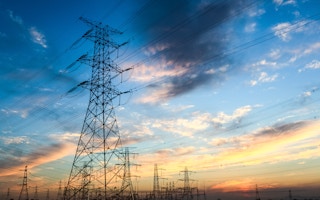“People have asked me why a utility would want to help its customers to use less energy. But if energy efficiency is important to our customers, then it is important to us,” says Michael Wong, general manager of one of Singapore’s largest power generation firms, Tuas Power.
All across Asia, rising expectations from consumers are driving the disruption of utilities, forcing well-entrenched electricity providers to change.
In Asia Pacific, almost two-thirds of consumers expect their energy providers to do more to help them to reduce their electricity bill, and power utilities that help them to do so will be more likely to be keep and win customers, according to a 2014 research paper by consultancy Accenture.
In 2016, Tuas Power rolled out an Integrated Energy Management Solution to help businesses and building managers get real-time data on their energy consumption, manage usage and oversee their tenants’ electricity accounts, meters and billing.
In Japan, the country’s largest electric utility, Tokyo Electric Power Company (TEPCO), plans to install 27 million smart meters by 2020 to help its customers to monitor and manage their power consumption.
South Korea’s largest electric utility, the Korea Electric Power Corporation, intends to spend US$115 million (S$216 million) between 2015 and 2017 to develop smart grids and other technologies that will help its customers improve their energy efficiency.
The future of electric utilities
Consumers’ rising expectations have forced utilities to become more customer-centric in other ways, noted executives during an afternoon of discussions about innovation in energy services in Singapore.
The panel discussions, organised on March 29 at the city-state’s Singapore Manufacturing Federation headquarters, were a curtain raiser for the Asian Utility Week 2017 event that will be held in Bangkok on May 24 and 25.
Attendees noted that more utilities are now offering services such as energy audits and demand response plans; incentive schemes that pay customers to voluntarily reduce their electricity use during peak periods.
One company that specialises in demand response plans is Red Dot Power, a Singapore electricity retailer. It is working with other companies to provide renewable energy and energy storage solutions. Its chief executive Vijay Sirse said: “The utility market is moving towards an integrated services model rather than being just a single service provider.”
Geraldine Tan, general manager of Singapore power generator and electricity retailer PacificLight, agreed. “What we offer is not just electricity, but other things that our customers need, such as energy efficiency audits,” she said.
Partnering electric utilities
Several speakers noted that a particularly effective way to save energy comes from utilities working with companies’ own internal systems. Bert Deprest, vice-president of energy solutions at Singapore utility Senoko Energy, pointed to the example of air-conditioning systems in commercial buildings.
“Let’s say you use electricity for about 10 hours a day, from 8am to 6pm. If we use your building management system to automatically increase the temperature by 2 degrees Celsius during the lunch hour, your chiller’s energy consumption will fall by 50 per cent during that hour. That translates to a 5 per cent energy savings every day,” he said.
Companies should invest in automated systems to capitalise on energy consumption data provided by utilities, said Steffen Endler, engineering conglomerate Siemens’ senior vice-president of strategy and business excellence in Southeast Asia. “Automation is key to gaining efficiency in energy usage,” he said.
William Tan, engine-maker Rolls-Royce’s energy manager for Asia Pacific, added that firms should invest in energy efficiency monitoring systems, and put together a team equipped with the best measuring tools.
He explained: “Automation is a must, but it depends on sensors and meters, which need to be properly maintained. Sensors may become inaccurate over time, or control parameters and set points may become outdated due to changes in demand. You need a professional team that ensures your automation system is operating as intended.”
Future-proofing business
Optimising energy efficiency is a forward-looking business strategy, according to Ang Kok Kiat, director of the Singapore National Environment Agency’s Energy Efficiency and Conservation Department.
“Companies that capitalise on opportunities to boost energy efficiency will reduce their operating cost and future-proof themselves against increases in energy prices,” he explained.
A more energy efficient business will be better prepared for government measures to control energy use, such as carbon taxes, said Jill Cainey, global applications director of energy storage at the United States-based S&C Electric Company, which provides equipment for electric power systems.
Singapore plans to introduce a carbon tax in 2019, which would make it the first Southeast Asian nation to do so. The tax, which is expected to be between S$10 and S$20 per tonne of greenhouse gas emissions, would be levied on the largest emitters of greenhouse gases, such as power stations.
China is expected to launch a national carbon trading scheme later this year, and is considering implementing a carbon tax by 2020. Utilities that can provide energy-saving solutions will be more attractive to customers as a result.
At the Asian Utility Week 2017 in May, which has “Digital Utility and Connected Customers” as its theme, utilities will be able to learn more about smart meters, data analytics software and other technologies that they can invest in to advance their business interests.
The event’s keynote speakers include Hiroshi Okamoto, managing executive officer of TEPCO, and Waiboon Chanchio, chief information officer of the Electricity Generating Authority of Thailand. More than 3,000 participants and 200 expert speakers from across the world are expected to attend.
Asian Utility Week 2017 is a platform that brings together the best of breed utilities using digital strategies to improve customer engagement, energy efficiency and operational excellence from across Asia, Europe and the United States.


















